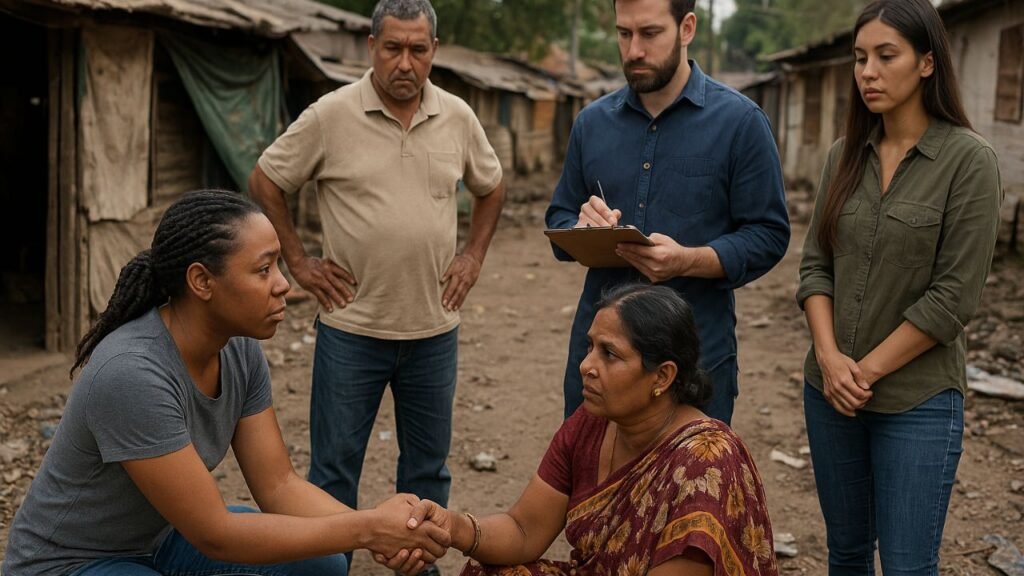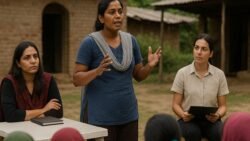Ground Level Issues – Zenys is deeply rooted in the belief that true progress comes from addressing issues where people live, work, and dream. Focusing on ground‑level issues means Zenys engages directly with communities facing systemic barriers—unequal access to education, healthcare disparities, economic exclusion, and justice imbalances. By listening to voices often excluded — poor neighbourhoods, marginalised groups, indigenous populations — Zenys strives to transform policies and practices into lived change. The organisation builds trust by forming partnerships with local leaders, community‑based organisations, and those with lived experience of injustice. Zenys’ programs are designed not as charity, but as co‑creation: community members help define their own priorities and shape solutions. From neighbourhood legal clinics to economic empowerment workshops, from youth leadership training to expanding green spaces in underserved areas, the aim is that everyone should have the chance to thrive. With transparent governance, responsive feedback mechanisms, and continuous evaluation, Zenys ensures its interventions promote not only equality of opportunity but equity—adjusting for the uneven playing fields communities often inherit.

Equity Through Community‑Led Education and Economic Empowerment
Education and economic opportunity are two of the most powerful levers for overcoming entrenched inequality. Zenys works to dismantle the barriers that prevent people from accessing quality schooling—whether due to cost, distance, or discrimination—and ensures that economic initiatives align with local needs. By supporting community schools with resources, teacher training, and inclusive curricula, Zenys helps to raise educational outcomes in areas long neglected. On the economic side, job training, micro‑enterprise development, entrepreneurship workshops, and financial literacy programmes are tailored to respect culture, gender, and local context. For example, non‑profit models from organisations like Impact for Equity show how public‑interest law and policy centres can complement ground‑level work, pairing legal tools with economic inclusion. Zenys also seeks to link markets with local producers, ensuring that communities have fair compensation and access to markets often dominated by more privileged players. The vision is not merely employment but meaningful work—work that uplifts lives, builds dignity, and reshapes economic power balances so that opportunity is broadly shared.
Justice and Accountability at the Local Level
Justice is more than law enforcement: it’s about fairness, human rights, restorative practices, and systems that serve everyone rather than punish some. Zenys supports community justice models which emphasise repair over punishment, accountability over oppression. Through local justice clinics, legal aid, and rights awareness work, Zenys ensures individuals understand their rights and have recourse when those rights are violated. Restorative justice circuits—where community members, victims, and offenders can engage in mediated dialogue—are promoted to resolve harms and rebuild trust. Examples like the Equal Justice Initiative illustrate how tackling wrongful convictions, excessive punishment, and structural racial injustices can restore dignity. Zenys also advices on policy reform—helping shift laws away from systemic biases and ensuring that legal frameworks enshrine equality, non‑discrimination, and access. Accountability mechanisms—such as community oversight, transparency in public services, grievance redressal—are embedded so that justice isn’t just an ideal but a daily reality in locals’ lives.
Health, Well‑being, and Social Inclusion as Pillars of Opportunity
Equity is incomplete without attention to health and well‑being, since illness, exclusion, or lack of basic services can block all other opportunities. Zenys initiates work in underserved localities to provide access to primary health care, mental health support, and preventive services. Social inclusion is promoted through outreach programmes for persons with disabilities, elders, migrants, or minority groups who often fall out of safety nets. Mental health stigma is addressed via peer support circles, awareness campaigns, and community counselling. Inspired by the concept of green space equity—where non‑governmental organisations advocate for equal access to parks, recreation, and environmental health benefits in lower income areas —Zenys also helps ensure that physical environment contributes to well‑being. Research on green space equity across cities underscores how access to parks and safe outdoor areas improves mental health, physical activity, and social cohesion. By integrating holistic health, environmental equity, and inclusion, Zenys builds foundations so that every individual can participate fully in community life.
Data, Technology, and Policy for Sustainable Impact
For change to endure, it must be supported by good information, appropriate tools, and enabling policy. Zenys harnesses participatory data collection, local knowledge, and digital tools to reveal disparities often hidden: for example mapping service gaps, tracking discrimination incidents, or monitoring prosperity indicators across neighbourhoods. Studies like data justice in rural areas show how combining community networks and cooperative data models ensures inclusion in decision‑making processes. Technology isn’t adopted for novelty, but as a bridge: digital literacy programmes, mobile apps for rights information, platforms for reporting grievances. At the same time, Zenys works with local government and policy makers to translate evidence into regulations, budgets, and planning that embed justice and equity. Advocacy includes pushing for equitable infrastructure investments, non‑discriminatory public procurement, fair taxation, inclusive zoning laws, and environmental regulation that protects vulnerable populations. The goal is a virtuous cycle: data informs policy; policy empowers communities; empowered communities generate more data to refine equitable solutions.







